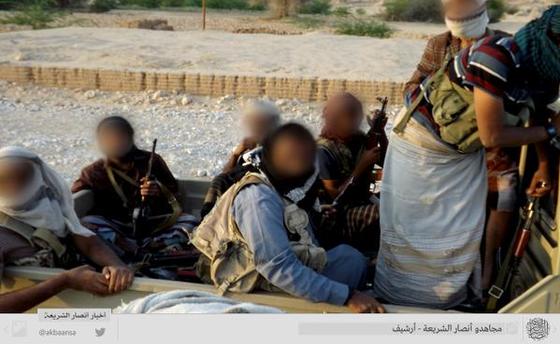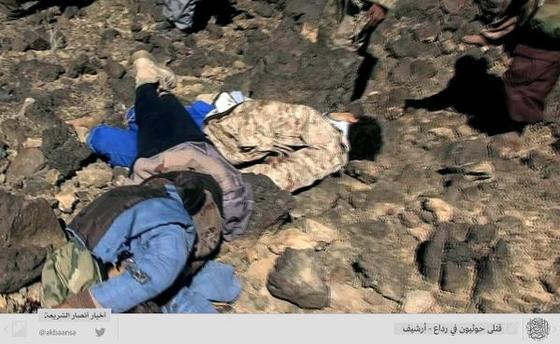As Yemen’s political and security situations continue to devolve, al Qaeda in the Arabian Peninsula (AQAP) has been pressing forward in its terrorist campaign targeting both the Yemeni military and Houthi rebel positions throughout the country.
Since Nov. 24, AQAP has claimed credit for a total of 17 attacks in eight different Yemeni provinces, from Hadramout in the east to Hodeidah in the west. The terrorist group’s escalation in Yemen is notable not only for the quantity of the attacks but also their quality. AQAP is increasingly carrying out brazen suicide operations and coordinated attacks on military/rebel positions, as well as targeting higher-level Yemeni and Houthi military personnel. Additionally, on Nov. 27, AQAP claimed a double IED attack at the US Embassy in Sana’a.
Recent attacks in Sana’a
AQAP claimed credit for three separate attacks in Sana’a on Dec. 1, including one plot that was foiled. At 6:42 a.m. on Dec. 1, AQAP fighters detonated a vehicle-borne improvised explosive device (VBIED) built into a motorbike. AQAP claimed that the VBIED was made of 36 kilograms of TNT and that the explosion was so strong that it was heard 10 kilometers away and completely destroyed the targeted Houthi center.
On the same morning, AQAP claims, its fighters also detonated an improvised explosive device (IED) at the residence of Houthi leader and judge Mohammad al Marwani. The AQAP statement claimed that the IED was comprised of seven kilograms of explosive material and that the attack seriously damaged the Houthi leader’s house. Another attempted IED attack, targeting a tribal leader accused of “cooperating with the Houthis,” was apparently aborted due to an unknown malfunction in the device.
Continued fighting in Baydah
Yemen’s central Baydah province has been the site of major AQAP activity since mid-October, when Shiite Houthi rebels advanced on the strategic province following their seizure of the Yemeni capital in late September. AQAP, which has made efforts to portray itself as the champion of Yemen’s Sunni tribes in the face of the Shiite Houthi rebel onslaught, claimed that its fighters and other “tribal mujahideen” launched coordinated attacks on Houthi centers in Baydah province on Nov. 25.
The attack actually began at 11:50 p.m. on Nov. 24, according to an AQAP statement, when fighters attacked the village of Khobza from three directions. At the same time, AQAP and Sunni tribal fighters shelled Houthi locations on the strategic Tha’lab Mountain. AQAP also noted that its fighters shelled Khobza while the village was completely empty of civilians, emphasizing the terrorist group’s self-proclaimed role in protecting Sunnis. Clashes reportedly lasted for over an hour following the initial assault, and then AQAP’s fighters withdrew from the village.
AQAP also claimed credit for another coordinated attack in Baydah province that took place during the night between Nov. 28 and Nov. 29. Similar to the previous attack, AQAP fighters began their assault at 11:30 p.m. on Nov. 28, specifically targeting the Hosn neighborhood of Manasseh in Radaa, where AQAP claimed that the Houthi leadership is based. The AQAP attack force was made up of a storming group and a support group, led by four fighters. The AQAP attackers reportedly came prepared with suicide belts, IEDs, Kalashnikov rifles, hand grenades, and missiles.
According to the AQAP statement, the four initial attackers who entered the Hosn neighborhood and began clashing with Houthi fighters were followed by the other two groups of AQAP fighters. Clashes in Manasseh lasted for about four and a half hours, until AQAP fighters finally withdrew at 4:00 a.m. An additional statement released shortly thereafter claimed that AQAP fighters entered all Houthi locations in Hosn, including the residences of Shaykh Abd al Ilah al Dhahab and Abd al Ra’ouf al Dhahab, and that two of the four initial AQAP attackers “attained martyrdom” during the course of the operation.
AQAP targeting individuals
In the past few weeks, AQAP seems to stepping up its attacks targeting individuals the terrorist group deems to be in cahoots with the Houthi rebels. This includes targeting the Yemeni military, which AQAP views as colluding with the Houthis and routinely refers to as “the Houthi-turned army.”
On Nov. 24, AQAP claims to have shot Hashem al Dulaymi, known also as Abu al Fatah, while he was near the police headquarters in Dhamar. Dulaymi was allegedly severely wounded by the attack and was taken to a hospital in Sana’a. AQAP claims that Dulaymi is a gold trader in the city and considers him “a Houthi supporter in the region.” Two days later, AQAP claimed credit for an IED attack that caused major material damage to a commercial building in Dhamar owned by Ahmad al Washli, whom AQAP accuses of being a Houthi.
On Nov. 30, two AQAP fighters riding a motorbike used a silenced gun to fire at a local intelligence official in Hodiedah who was in the Ghaleel section of the city. The AQAP statement claimed that the official was Abd al Rahman Ayyash Shabeel, the head of investigations in Hodeidah province for Political Security, the Yemeni intelligence agency. Shabeel, who was severely wounded, was transferred to an intensive care unit at a local hospital.
During the past week, AQAP also claimed credit for the attempted assassination of a “Houthi Political Committee official” in Ibb and of a Yemeni military commander in Abyan province. These latest attacks come just weeks following similar AQAP attacks targeting US Ambassador to Yemen Matthew H. Tueller as well as the former Yemeni president, Ali Abdullah Saleh.
The following pictures were released by AQAP’s al Malahem Media Foundation along with statements claiming credit for attacks:
 “Mujahideen of Ansar al Sharia”
“Mujahideen of Ansar al Sharia”
Are you a dedicated reader of FDD's Long War Journal? Has our research benefitted you or your team over the years? Support our independent reporting and analysis today by considering a one-time or monthly donation. Thanks for reading! You can make a tax-deductible donation here.








